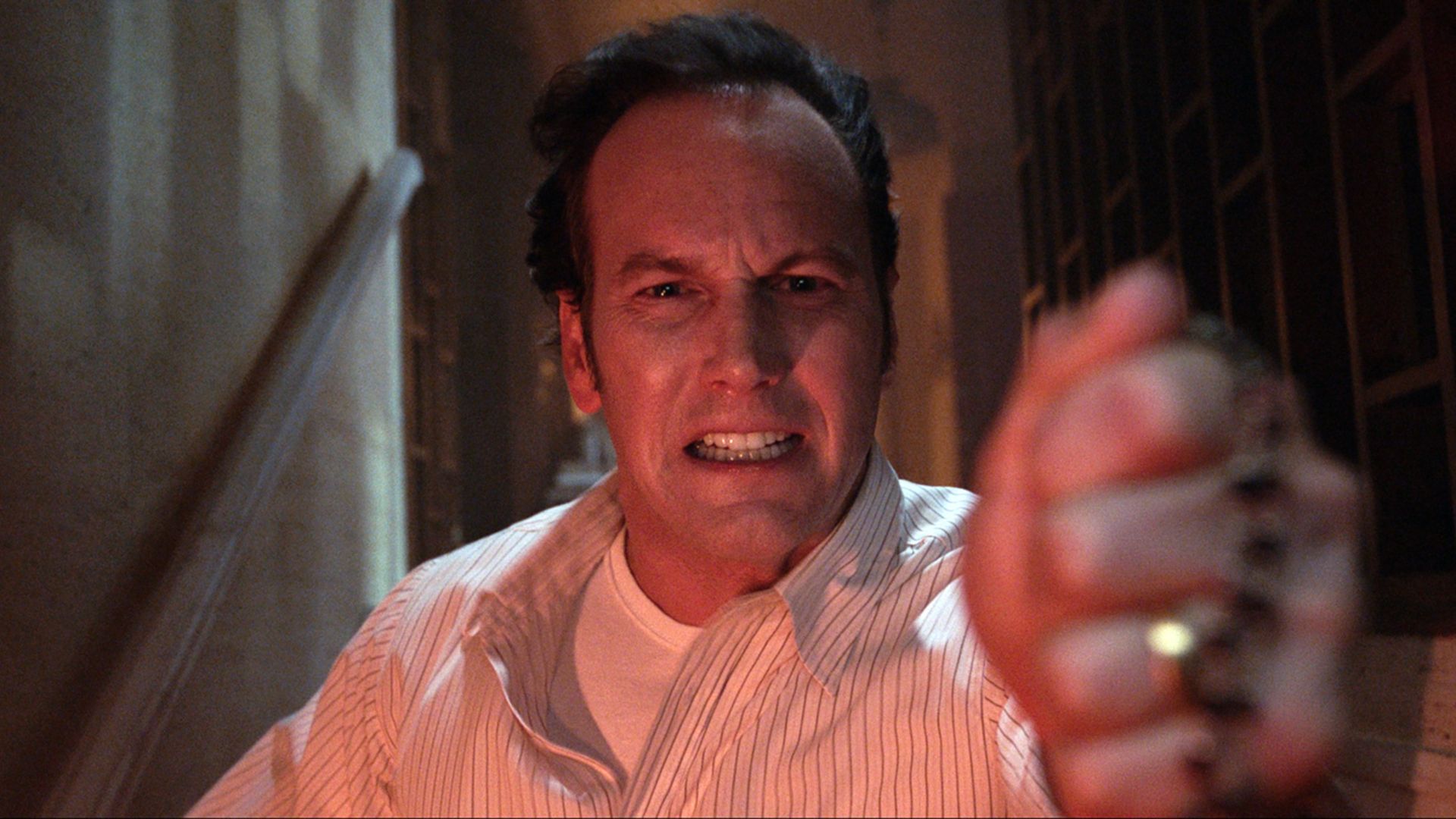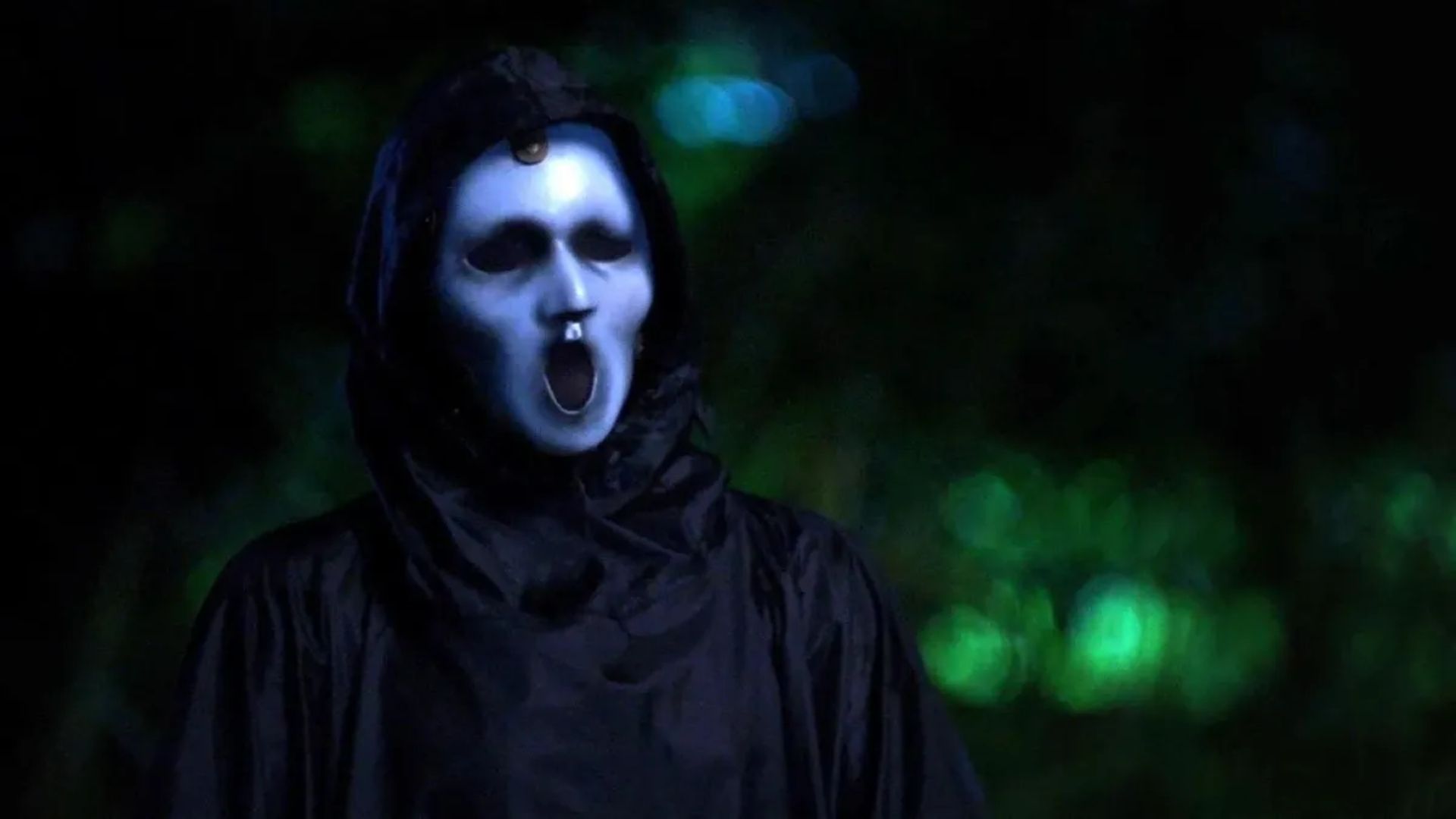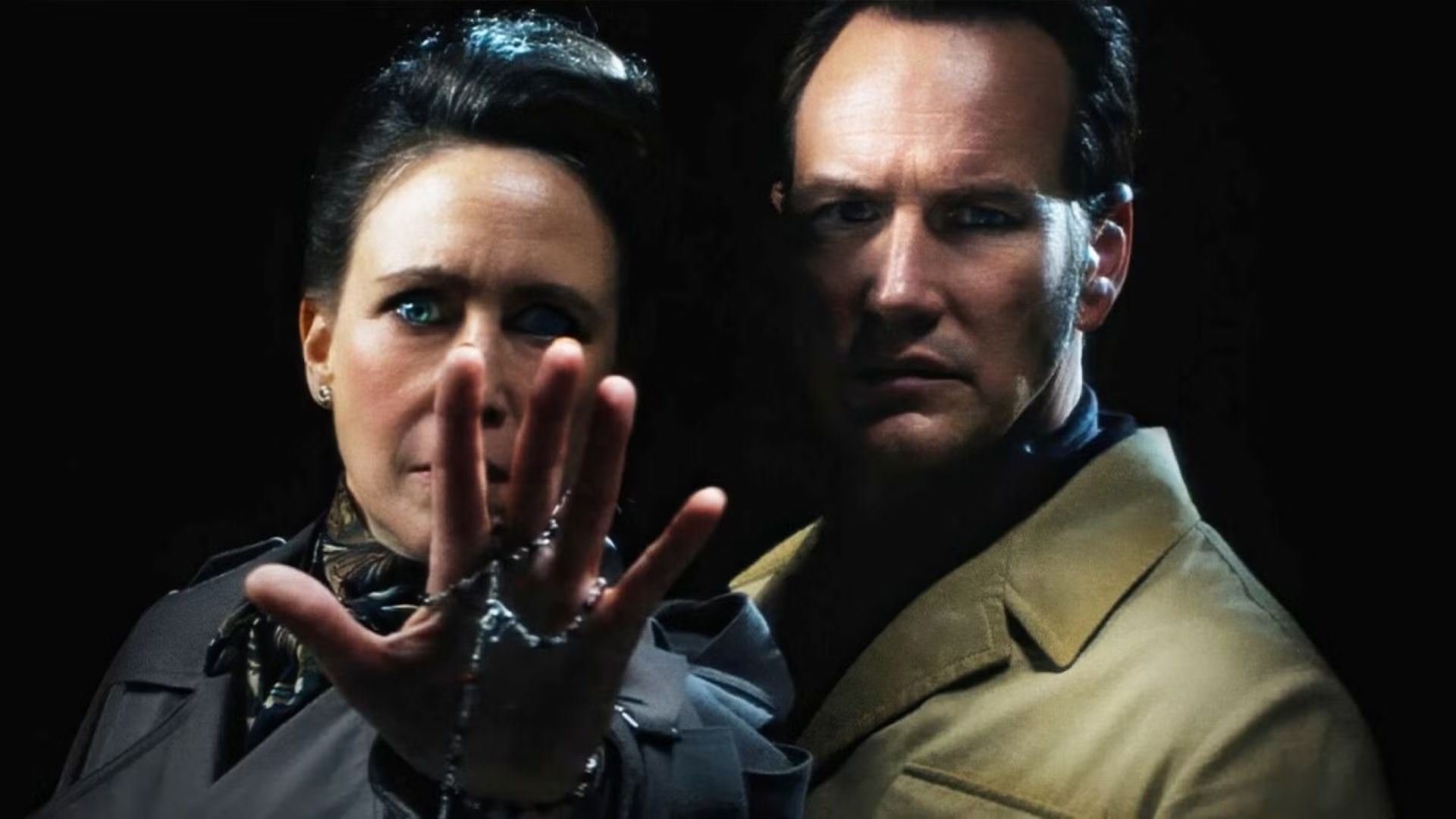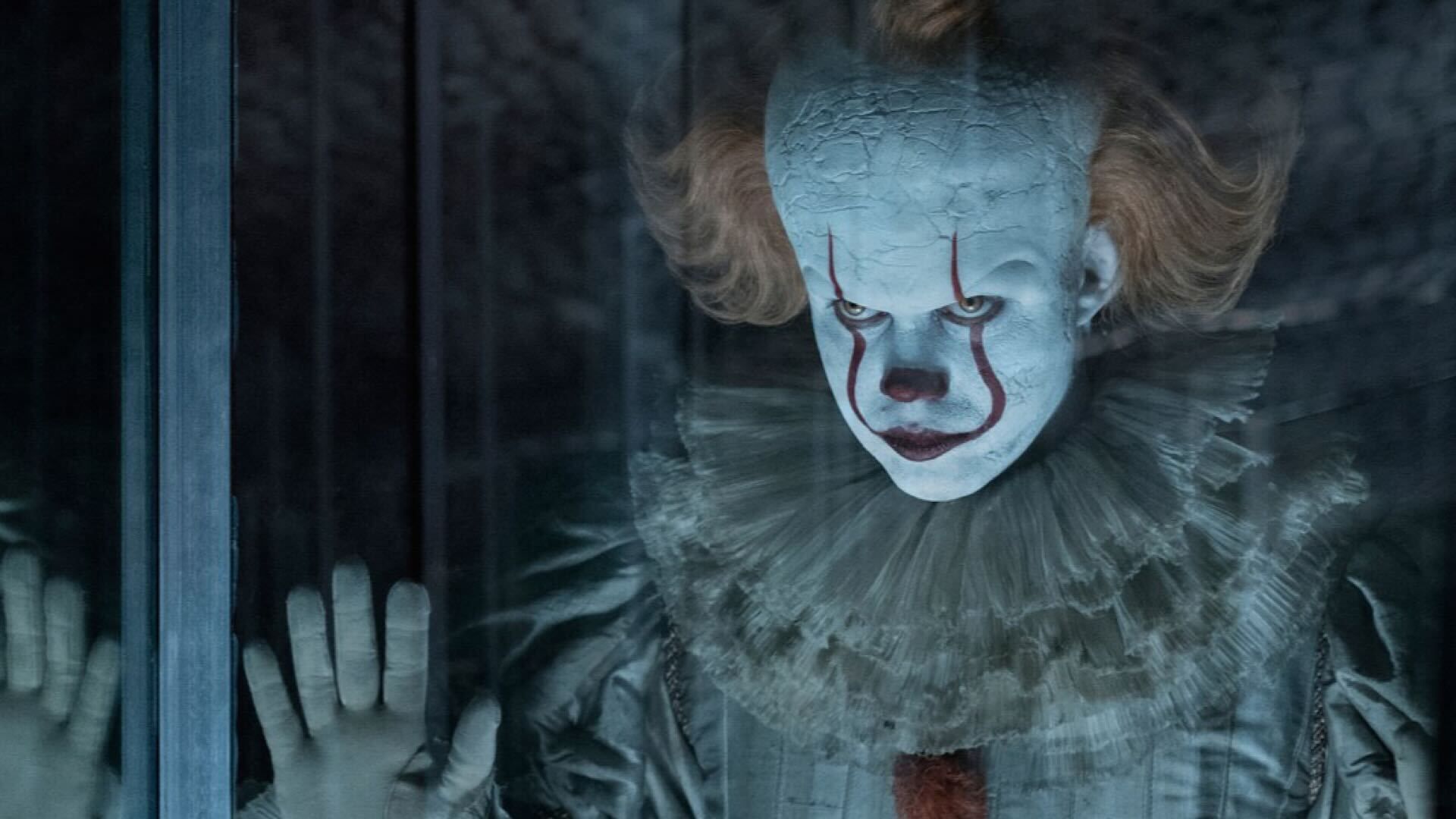
Even though the *Conjuring* film series is finishing up, a spin-off show is in the works for HBO. Around the same time, A24 announced they’re creating a *Texas Chainsaw Massacre* TV series. Next year, *Alien: Earth* is expected to be one of the most talked-about shows – it’s the first time the *Alien* creatures will be the focus of a television series. And Peacock is working on *Crystal Lake*, a prequel to *Friday the 13th*. With the new *It* series, *Welcome to Derry*, also on the way, many popular horror movies are now becoming TV shows, especially on streaming services.
This approach echoes Disney’s strategy with Marvel and *Star Wars*, where they heavily invested in television series. At first, it worked well, with shows like *WandaVision* and *The Mandalorian* receiving praise from critics and audiences, and even earning Emmy nominations. However, some believe that making so many Marvel and *Star Wars* TV shows has lessened the impact of their movies, which may explain why films like *The Marvels*, *Captain America: Brave New World*, and *Thunderbolts* didn’t perform as well in theaters, especially since they were connected to streaming series. Now, the question is: will expanding these famous horror franchises to television, even if the shows aren’t hits, hurt their reputation as big-screen experiences? Or is horror uniquely capable of staying strong across different formats?
History of Horror Films on Television

MTV
It’s common to adapt successful horror movies into TV shows. Back in the late 1980s, both *Friday the 13th* and *A Nightmare on Elm Street* did just that, creating their own television series. However, these shows weren’t direct continuations of the films; they used the existing brand recognition to tell new, original stories. Jason Voorhees, the killer from *Friday the 13th*, never actually appeared in the *Friday the 13th* TV series, although Robert Englund, who played Freddy Krueger, hosted *Freddy’s Nightmares*. Unfortunately, neither series proved very popular and aired after the peak of their respective franchises.
During the 2010s, shows like *Hannibal*, *Bates Motel*, and *The Exorcist* successfully reimagined their original movie franchises. At the same time, plans for new films in the *Silence of the Lambs*, *Psycho*, and *Exorcist* series stalled due to underwhelming performances, allowing the TV shows to exist without impacting potential movie profits. Subsequent efforts to bring *The Exorcist* back to the big screen haven’t succeeded, and the franchise continues to evolve creatively.
Many efforts to turn horror movies into TV shows haven’t been successful. For example, MTV’s Scream series lasted three seasons during a long break between films, but it’s largely been forgotten and isn’t considered part of the official storyline. Similarly, a remake of I Know What You Did Last Summer didn’t do well in theaters and its single season on Prime Video in 2021 also failed to gain traction.
Several horror series recently continued stories that began with popular films. For example, Ash and the Evil Dead picked up the plot from Army of Darkness, and the Chucky series (2021-2024) continued the film saga, even though the latest movies had gone straight to video. These series, like Chucky and Evil Dead, revived franchises that appeared to have run their course in theaters. Other shows like I Know What You Did Last Summer, Scream, Hannibal, Bates Motel, and The Exorcist were all reboots – new takes on existing horror franchises – that aimed to attract a broader audience after the films had ended.
Some horror movies that weren’t huge hits got revived as TV shows, like *Scream* and *I Know What You Did Last Summer*. However, successful horror franchises like *Hannibal* and *Bates Motel* haven’t continued with new installments. Now, with so many new horror series based on existing franchises, there’s a concern that constantly adapting these stories for TV might overexpose them and lessen the impact of the original movies.
Can Overexposure of Horror Franchises on Television Hurt Their Cinematic Outings?

Warner Bros.
There’s been a lot of discussion about how *Star Wars* and the Marvel Cinematic Universe (MCU) feel less special now that they’re primarily on Disney+. Before, seeing a new movie in either of these franchises was a big event. Fans would wait months for a new MCU film or even years for a *Star Wars* movie. But with the release of two or three streaming series each year, that sense of anticipation has diminished. This isn’t just happening with Disney; *Star Trek* and *The Karate Kid* have also struggled to find the right balance between their TV shows and movies.
The *Star Trek* movies that began with the film often called the ‘Kelvin timeline’ were unique because they were released during a period without any *Star Trek* shows on television. After *Star Trek Beyond* came out, *Star Trek: Discovery* premiered on CBS All Access (now Paramount+), and several other *Star Trek* series followed. However, *Star Trek 4* has been stuck in development for almost ten years.
It’s tricky to get people excited about a new *Star Trek* movie when multiple *Star Trek* shows might already be on TV at the same time. The movie needs to feel special and significant – like a major event, not just a really long, costly TV episode. *Cobra Kai* successfully revived the *Karate Kid* franchise with a popular TV series, making it more successful than it had been in decades. However, the recent *Karate Kid* movie, *Legends*, didn’t perform well in theaters, showing that simply making a movie isn’t enough to guarantee success.
We likely won’t see several TV series based on one horror movie released within such a short time, unlike what happened with franchises like Marvel, *Star Wars*, or *Star Trek*. However, it’s worth thinking about whether making a franchise into a weekly show could diminish its impact. *Alien: Earth* premiered on FX just a year after *Alien: Romulus* unexpectedly succeeded in theaters.
Now that a follow-up to *Alien: Romulus* is planned, it’s unclear whether the positive reception of *Alien: Earth* will boost its success or hinder it, as viewers become more used to seeing *Alien* content on TV. There’s also a worry that people who didn’t watch *Alien: Earth* might skip the new movie, thinking they need to have seen the series to understand it – even though the two aren’t directly related.
Despite having a record-breaking opening weekend, the latest installment in *The Conjuring* series is now heading to streaming while the franchise is still popular. While this could bring in a lot of viewers online, it raises concerns about whether audiences will start to see the series as a streaming-only property, potentially discouraging them from going to the theater for future films. It also leaves the question of whether viewers will know what to watch to stay current with the story. This strategy differs from *The Purge* franchise, where the television series aired well before and after the films. However, moving major franchises directly to streaming is still a gamble, and it’s already caused problems for other series.
Horror Can Afford To Experiment With Television

Warner Bros.
Ultimately, quality is the most important factor. While a successful franchise can lift all projects associated with it, a string of disappointing releases can damage its reputation. For example, while fans initially loved *The Mandalorian*, follow-up shows like *The Book of Boba Fett* and *Obi-Wan Kenobi* weren’t as well-received, which made it harder for later, stronger entries like *Andor* and *Skeleton Crew* to regain audience trust. If *Alien: Earth* proves to be a consistently high-quality series like its first season, it will boost the franchise and encourage demand for more. This principle applies to other franchises too, such as *The Conjuring*, *Friday the 13th*, and *Texas Chainsaw Massacre* – strong entries are crucial for maintaining long-term success.
When we look at horror movies versus huge franchises like the Marvel Cinematic Universe (MCU) or *Star Wars*, it’s important to consider how much money goes into making them. The MCU and *Star Wars* aim for the widest possible audience, so they often have enormous budgets – a single film can cost as much as several horror movies combined. Because of this, expanding these franchises to TV is risky; if viewers lose interest, Disney risks losing valuable customers and the revenue needed to cover the high production costs. These days, even a successful MCU movie is considered a letdown unless it breaks all previous records.
Horror movie series usually have a dedicated fanbase, but they don’t need to attract everyone like big franchises such as Marvel or Star Wars. Because horror films often have smaller budgets and lower profit expectations, a disappointing box office performance – even for a well-known series like The Conjuring or Alien – isn’t as financially harmful to a studio as a flop of a major blockbuster like The Marvels.
Horror fans are remarkably loyal to the genre. While fans of superheroes or *Star Wars* might stop following a series after a few disappointing installments – some even quit after *The Rise of Skywalker*, and others are experiencing fatigue from the sheer number of Marvel releases – horror fans generally stick around even if they didn’t love the latest film. The enduring popularity of *The Texas Chainsaw Massacre*, despite only the original being a critical success, is a great example of this dedication.
Horror movies consistently draw dedicated fans to theaters. While some people are getting tired of so many superhero films, horror releases about three times as many movies each year, and audiences continue to show up. Not every horror film is a hit, but the genre is generally a reliable bet because even a small, devoted fanbase can make a movie profitable. This strong loyalty from fans is likely a key reason why iconic horror villains like Leatherface, Pennywise, and the Xenomorphs remain popular across film and television.
Read More
- All Golden Ball Locations in Yakuza Kiwami 3 & Dark Ties
- Hollywood is using “bounty hunters” to track AI companies misusing IP
- NBA 2K26 Season 5 Adds College Themed Content
- Gold Rate Forecast
- What time is the Single’s Inferno Season 5 reunion on Netflix?
- Mario Tennis Fever Review: Game, Set, Match
- Pokemon LeafGreen and FireRed listed for February 27 release on Nintendo Switch
- Beyond Linear Predictions: A New Simulator for Dynamic Networks
- Train Dreams Is an Argument Against Complicity
- EUR INR PREDICTION
2025-10-06 00:51